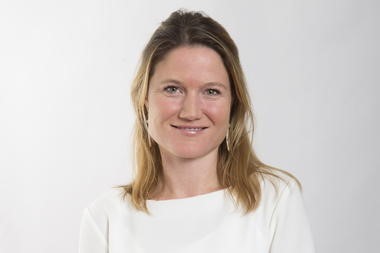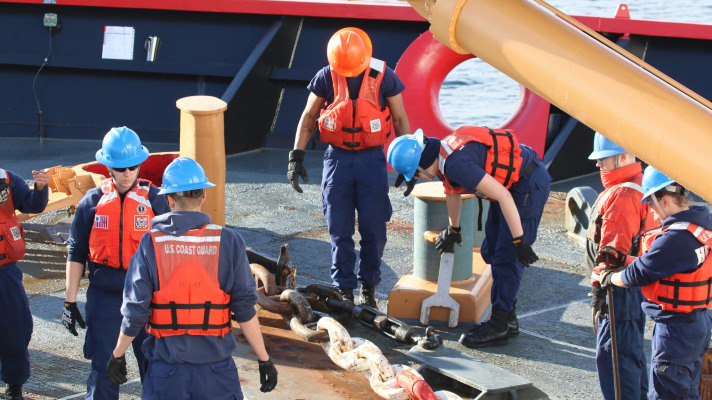Despite efforts being made to improve crew changeovers, not enough progress is being made, according to Royal Association of Netherlands Shipowners (KVNR) Managing Director Annet Koster. The corona crisis has forced thousands of seafarers to spend months on board, and their number is only increasing.
In April, the European Commission, various shipowners’ associations and maritime trade unions called on governments to facilitate crew changes worldwide. But this call has not yet been answered sufficiently. ‘The two biggest bottlenecks are flights and visas,’ says Koster. ‘First of all, the number of flights and destinations have to increase. For that to happen, the national restrictions in the home countries will have to be lifted. But I also want to see a further increase in the capacity for issuing visas in the same countries of origin.’
Consequences
‘From a European point of view, it would be very helpful if a temporary visa waiver were currently introduced for seafarers who have already obtained a visa. That would save a lot of red tape and avoid unnecessary delays,’ says Koster.
‘It is extremely tiring for the seafarers to be on board far beyond the usual period of time. They won’t be able to hold out much longer, especially if there is no concrete prospect of relief. If this continues, it will also have economic consequences. When the seafarers are no longer able to carry out their work and the ships no longer sail. The shipping industry, which transports 85 to 90 per cent of all goods around the world, is an important link in the logistics chain and therefore also in the economic chain. If the shipping industry comes to a standstill, we have a problem.’
Last Sunday, the International Transport Workers Federation (ITF) gave all its members who are ‘imprisoned’ on board ships the green light to lay down work as a result of corona travel restrictions. Koster thinks this attention for the seafarers on board is only right, but questions the advice. ‘I think it’s a remarkable campaign. I don’t understand the call to halt work. It doesn’t help the seafarers to go on strike. They will still not be able to go home, because then they’ll face the same challenges as we do.’
 Annet Koster, KVNR’s Managing Director (by KVNR).
Annet Koster, KVNR’s Managing Director (by KVNR).
Air bridges and visa
The KVNR has realised ‘air bridges’ in collaboration with Dutch airline KLM. These ‘air bridges’ are connections to a select number of airports that act as hubs in the vicinity of seaports in order to organise crew changes. Koster: ‘There are flights to and from destinations such as Manila and Jakarta. But it’s not a smooth process. I am careful to be very positive about this. I am very happy with what KLM is doing, but it doesn’t yet have the form we would like it to have.
‘KLM is facing restrictions, including a limited number of slots they get in Manila, for example,’ says Koster. ‘And if they already have slots, people are often no longer allowed on those flights, because only a limited number of people are allowed in per day’.
‘Transport between countries is sometimes possible, but then it is often not possible to travel within the country itself. In the short term, nothing can be done about this, because a country like the Philippines has to decide itself to lift those travel restrictions between different provinces. I would like such a country to decide to ensure that seafarers, who have a vital profession, can travel well within the country itself, even though they are still locked up. And if even more slots are allocated, then the circle is complete’.
‘National rules on seafarers’ voyages should also be temporarily relaxed. It would be nice if visa facilitation could be temporarily introduced within the Schengen area. This also applies to the Visa on Arrival (VOA) when it is not possible to arrange a visa in the country of origin. If all this is properly arranged, we can scale up again to the old level before the corona crisis, but that is not yet the case. There are still too many restrictions and that is why we are still lagging behind.’
Flights fill up quickly
It frustrates Koster that the situation has been going on for so long now. ‘Everybody’s doing their best. But it also frustrates our members. They feel powerless. As far as the ‘air bridges’ are concerned, the shipowners wonder whether they are getting all excited about nothing, because those flights fill up quickly. A crew change consists of so many links. If such a link is missing, the crew change cannot happen. On the one hand, the seafarer on board must be able to return to his country of residence. On the other hand, the seafarer going on board must be able to leave his country and enter the country where the ship is moored to take over,’ says Koster.
‘Together with the Dutch government, which is in contact with international governments, and KLM, we will continue to initiate crew changes. But the ball is mainly in the international court of various national governments when it comes to visas, restrictions on travel within the country, allowing slots and quarantine measures. The private side, we as the KVNR and KLM, have found each other. But we are restricted by the public side: the governments abroad.’
‘In the Philippines, for example, there are generic restrictions. Until Sunday, a maximum of 600 people were allowed into the country because of quarantine. This has now been scaled up to 2000 people. But this applies to a whole group of people, not just seafarers. There are also ordinary people who want to go back.’
Opportunity
In order to get regular changeovers up and running again, the KVNR is also urging the Dutch government to take action. Koster: ‘The Netherlands must dare to be brave. You just notice that they are tense about this. At this special time of the Covid-19 pandemic, let the Netherlands be the biggest hub for crew changes. As the largest port in Europe, Rotterdam is normally also the largest port in terms of crew changes. Make sure it stays that way and don’t be afraid to become a drain. There is a fear that if the Netherlands does not apply strict criteria with regard to the issue of visas, or even temporarily abandons the visa requirement altogether, the Netherlands will be chosen in large numbers as the location for crew changes. But I see this as an opportunity for Schiphol, KLM and Dutch ports. With the port of Rotterdam in the lead, but the ports in Amsterdam, Eemshaven, Vlissingen and Terneuzen as well. I call on everyone to see it as an opportunity, not as a threat.’
Koster wants the crew changes to be restarted immediately. ‘These are people. On 25 June it was the Day of the Seafarer. It would be nice if all authorities would seize this day to ensure that all crew changes that have come to a standstill over the past few months are eliminated within the next few weeks. For as it stands now, the Day of the Seafarer is one with a significant downside.’
This article first appeared in Dutch on Nieuwsblad Transport, a publication of SWZ|Maritime’s publishing partner Promedia.








